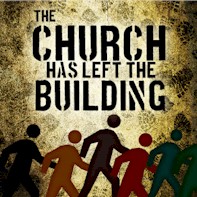This is a guest post by Mike Edwards.
Mike asks questions in hopes one may reconsider any beliefs about God that may discourage one from pursuing God and spirituality. Mike blogs at: What God May Really Be Like – Misbeliefs About God. Visit his website to learn more about him and his books.
Note from Jeremy Myers: I am publishing several guest posts this summer as I take some time off to rest. I am also preparing for something HUGE this fall. Stay tuned! If you would like to write a Guest Post for RedeemingGod, begin by reading the Guest Blogger Guidelines.

It can be very confusing how one is supposed to relate to an invisible God.
Frustrations can lead to simply giving up having a meaningful relationship with one’s Creator. I understand that some people claim that God speaks to them directly, but this is not the experience of the majority of those who seek a relationship with God. Many may prefer that God would speak more directly but this doesn’t always leads to the results we may think.
The Bible suggests that God spoke directly with the first couple in the garden, but this experience seemed to wane as history progressed. And while Moses says he spoke to God face to face (Exod 33:11, when God sets out to communicate to the Israelites, He did so through the mediation of Moses, and by inscribing the commandments on stone with the finger of God (Exod 31:18). We don’t know exactly what types of communication these were but most would agree that God was no longer communicating in the same way He communicated with Adam and Eve.
Since God doesn’t speak audibly or write in stones to us, how can we know that we hear the voice of God?
Many of us talk out loud to God or we pray silently and then thoughts come into mind. Are such thoughts from the mind of God?
Well, there is some bad news and some good news.
We can’t know for certain that our thoughts are inspired by God, but the good news is God’s love is supportive not controlling. God gives us freedom to make decisions in an open future. Any number of decisions can be made in our situation. God does not predetermine our future. This indicates that while we want to hear more directly from God, God indicates His responsiveness to us by not predetermining everything we think, say, and do. He responds to us as we respond to Him. This means that while we may not be able to hear the voice of God, we can see His response to us through how life unfolds as we pray and communicate with Him.
God always listens
One benefit to God’s approach to us is that He always listens. Most of us want a good listener in a relationship. Very few of us want to be told what to do, or we would always take the advice of others rather than frequently having a comeback as to why one’s suggestion won’t work. Opinions are not always helpful or welcomed. Besides, one’s interference can prevent growth and self-satisfaction resulting from making independent choices. We want to be heard by another soul to talk out situations and share burdens that are heavy to carry alone.
If can be comforting to know God is always available to listen. We may be embarrassed to share our latest relapse with a friend. God doesn’t heap more guilt on us. God has endless mercy and forgiveness so we don’t give up no matter how demoralized we may feel. God is always available in times of loneliness. Friends can’t always be available in the middle of the night. We may feel that we are overburdening our friends by constantly going to them. God’s shoulders surely are much bigger.

But, I want to hear what God thinks!
We all want to know what God thinks. But the truth is that we already mostly know what God thinks. If you think about it, we already know most of what God thinks about most issues. Therefore, talking with God is mostly for emotional support.
And as for the issues where we want God’s input on our life decisions, God withholds His input because He wants us to make our own decisions.
It is helpful to think about moral versus immoral actions. When it comes to most moral issues, God has already pretty clearly told us in Scripture what the best course of action is.
But many decisions aren’t moral – what job to take, whether to move to a different city, etc. God doesn’t predetermine our future so we have to wonder the “right” decision. God doesn’t know if your partner is suddenly not going to honor their commitment when challenges arise. Wise decisions are simply taking into account past experiences, current circumstances, future aspirations, and going for it. God’s love is both freeing and uncontrolling. He doesn’t tell us what to do in such cases, because in some sense, He is just as excited as we are to find out what we will do and what will come of it.
Some relational decisions seem to have a touch of morality that we aren’t sure what God would do. God’s love is still freeing. God isn’t hiding. Should we forgive a mom and sibling for participating in favoritism? Neither admits to any favoritism but such actions are clear to most outsiders. The Bible can be used to suggest always forgive or forgiveness is only possible when one acknowledges wrongdoing. Jesus once said to rebuke others but if they repent forgive them (Luke 17:4). One may forgive to best deal with personal bitterness. Others may not forgive to avoid further bitterness since the guilty denies wrongdoing.
In relationships there isn’t always a “right” thing to do. It is more complicated for leaders of nations for they are making decisions for millions, thus governments best have checks and balances.
Still, a relationship with God isn’t about being told what to do. It is considering how a loving God may think on a matter and feeling free to make a decision based on your present circumstances. If you are insisting God guarantee a certain outcome, then you are asking God to be a controller. A loving God would speak audibly if necessary; otherwise, assume you have God’s blessings if it isn’t immoral or violating the rights of others. Don’t live in fear; live in the knowledge of God’s love. And don’t demand certainty, for this is something even God cannot guarantee in a free world.
I know some of what I have written is controversial. So what do you think? How can we hear the voice of God? How can we know what to do with certain decisions in life? How does a loving God help guide and direct us through life? Share your input and ideas in the comment section below.




 This is a guest post by Grahame Smith.
This is a guest post by Grahame Smith. Months ago, a man in his early 30s passed me in the hallway. I had got to know him at one of the workplaces I visit. As one often does in such circumstances I asked him how he was going. This is a question which can easy roll off our tongues perhaps with little thought of what may come next.
Months ago, a man in his early 30s passed me in the hallway. I had got to know him at one of the workplaces I visit. As one often does in such circumstances I asked him how he was going. This is a question which can easy roll off our tongues perhaps with little thought of what may come next.
 This is a guest post by Brandon Davis. Here is what Brandon writes about himself:
This is a guest post by Brandon Davis. Here is what Brandon writes about himself:

 This is a guest post by Paule Patterson.
This is a guest post by Paule Patterson. Slunked under his tattered cloak on a bed of trampled dirt and granite, Elijah was exhausted by his forty-day trek to Horeb and his bout with depression. He was alone. His volcanic Mount Carmel showdown, his draught ending prayer session, and his Flash like outrunning of the chariot have all faded into the foggy clefts of his memory. He was alone. Everyone had failed. If a torrential inferno from the clouds and the relief from the long desperate draught were not enough to turn the hearts of Israel back to their God, what was the point?
Slunked under his tattered cloak on a bed of trampled dirt and granite, Elijah was exhausted by his forty-day trek to Horeb and his bout with depression. He was alone. His volcanic Mount Carmel showdown, his draught ending prayer session, and his Flash like outrunning of the chariot have all faded into the foggy clefts of his memory. He was alone. Everyone had failed. If a torrential inferno from the clouds and the relief from the long desperate draught were not enough to turn the hearts of Israel back to their God, what was the point? To answer the question, compare this story with that of Moses’ mountain experiences which took place on Mount Horeb and Mount Sinai. These two mountains are closely related to each other in significance and there is debate on whether or not Sinai and Horeb is the same mountain. Moses had seen flames rain down on Mount Sinai, felt the quaking of the mountain (Exodus 19:18) and seen the ruach (wind) push up the seawaters so the people may escape on dry land (Exodus 15:8-10). Moses had felt the agony and rage of seeing God’s people over and over again forget and forsake their Savior and Lord.
To answer the question, compare this story with that of Moses’ mountain experiences which took place on Mount Horeb and Mount Sinai. These two mountains are closely related to each other in significance and there is debate on whether or not Sinai and Horeb is the same mountain. Moses had seen flames rain down on Mount Sinai, felt the quaking of the mountain (Exodus 19:18) and seen the ruach (wind) push up the seawaters so the people may escape on dry land (Exodus 15:8-10). Moses had felt the agony and rage of seeing God’s people over and over again forget and forsake their Savior and Lord.
 This is a guest post by Jim Gordon.
This is a guest post by Jim Gordon. After several years of questioning and being unhappy with the way church was performed, my wife and I made a decision to stop attending and see how we felt.
After several years of questioning and being unhappy with the way church was performed, my wife and I made a decision to stop attending and see how we felt. We also find it interesting that God leads us to people when we least expect it, even when it is someplace that no one would expect such as a restaurant, park, work or even a pub. We have also made a lot of friends that many religious people would not want to be around, yet the love of Christ within us draws us together in love and acceptance.
We also find it interesting that God leads us to people when we least expect it, even when it is someplace that no one would expect such as a restaurant, park, work or even a pub. We have also made a lot of friends that many religious people would not want to be around, yet the love of Christ within us draws us together in love and acceptance.